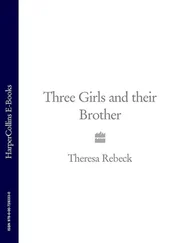Leopold Wagner - Names - and Their Meaning
Здесь есть возможность читать онлайн «Leopold Wagner - Names - and Their Meaning» — ознакомительный отрывок электронной книги совершенно бесплатно, а после прочтения отрывка купить полную версию. В некоторых случаях можно слушать аудио, скачать через торрент в формате fb2 и присутствует краткое содержание. Жанр: Эзотерика, foreign_religion, foreign_antique, на английском языке. Описание произведения, (предисловие) а так же отзывы посетителей доступны на портале библиотеки ЛибКат.
- Название:Names: and Their Meaning
- Автор:
- Жанр:
- Год:неизвестен
- ISBN:нет данных
- Рейтинг книги:3 / 5. Голосов: 1
-
Избранное:Добавить в избранное
- Отзывы:
-
Ваша оценка:
- 60
- 1
- 2
- 3
- 4
- 5
Names: and Their Meaning: краткое содержание, описание и аннотация
Предлагаем к чтению аннотацию, описание, краткое содержание или предисловие (зависит от того, что написал сам автор книги «Names: and Their Meaning»). Если вы не нашли необходимую информацию о книге — напишите в комментариях, мы постараемся отыскать её.
Names: and Their Meaning — читать онлайн ознакомительный отрывок
Ниже представлен текст книги, разбитый по страницам. Система сохранения места последней прочитанной страницы, позволяет с удобством читать онлайн бесплатно книгу «Names: and Their Meaning», без необходимости каждый раз заново искать на чём Вы остановились. Поставьте закладку, и сможете в любой момент перейти на страницу, на которой закончили чтение.
Интервал:
Закладка:
The earliest form of religion on the face of the earth was Monotheism, so called from the Greek monos , alone, only, and Theos , God; therefore signifying a belief in, and the worship of, one Only God. The word Religionis derived from the Latin religare , to bind. Hence, Religion implies obedience, submission, and an acknowledgment of certain orthodox doctrines regarding our duty to a Supreme Power. Mosaism, otherwise Judaism, denotes the religion of the Jews as enjoined in the laws of Moses. But even during that favoured period when God manifested Himself in various ways to the children of Israel, Idolatry prevailed. Let us consider what this word Idolatryreally means. Idol is a contraction of the Greek eidolon , the diminutive of eidos , a figure, an image, or that which is seen, derived from the verb eidein , to see; while Idolateris made up of the two Greek words, eidolon , and latres , one who pays homage, a worshipper. An Idolater, therefore, is a worshipper of images, or that which he sees. The Israelites, who prostrated themselves before the Golden Calf, were strictly Idolaters; so were the Egyptians, who worshipped the sun, the moon, the ox, the dog, the cat, the ibis, and the ichneumon; but the Greeks and Romans were scarcely Idolaters, because the mythological deities they worshipped were unseen—as unseen as is the True God Himself. Neither were they Pagans, which term, from the Latin paganus , a countryman, a peasant, based upon pagus , a country, a district, has nothing whatever to do with religion. The Greeks and Romans were, in fact, Polytheists, and their religion was Polytheism, signifying, in accordance with the Greek polus , many, and Theos , God, a belief in more gods than one. The more general description of the religion of the ancients is comprised in the term Mythology, written in the Greek muthologia , from muthos , a fable, and logos , a discourse.
Alluding to the Fire Worshippersof the East, who fall prostrate in adoration of the sun, it should be noted that these do not actually worship the sun, but God, whom they believe to reside in it. This Sun or Fire Worship, the religion of the Parsees, otherwise denominated Zoroastrianism, was introduced into Persia by Zoroaster about five hundred years before the Christian era. In short, the Parsees are the descendants of those who, in Persia, adhered to the Zoroastrian religion after the Moslem or Mahommedan conquest of their country, whence they were at length driven by Moslem persecution to migrate to India. The Brahminsare the priests or higher caste of the Hindoos, who, like the Burmese, the inhabitants of the adjacent country, Burmah, claim to be descended from Brahma , the supreme deity of the Hindoo religion. The Buddhistsare the followers of Buddha, a Hindoo sage who founded the doctrine of Buddhismin the sixth century b.c. Mahommedanismis the religion founded by Mahommed, or Mahomet (born 571, died 632). The term Koran, or more properly Al Koran , “The Koran,” which constitutes the Bible of the Mahommedans, is Arabic for a “Reading,” a “thing to be read.” The native name of the Mahommedan religion is Islam, resignation and obedience to God, founded upon the verb aslama , to bend, to submit, to surrender. The Mahommedans of Turkey and Persia usually bear the style of Mussulmans, a corruption and the plural of the Arabic muslim , rendered into English as Moslem, and meaning a true believer, or one who holds the faith of Islam.
Our reference to Mahommedanism having carried us some six hundred years beyond the foundation of Christianityby Christ, we must of necessity retrace our steps. Reverting to the Jewish people contemporary with Jesus Christ and His disciples, a certain portion of these styled themselves Phariseesbecause they affected a greater degree of holiness than their neighbours. The name was derived from the Hebrew word pharash , separated. The Nazarenes, so called after “Jesus of Nazareth,” were a sect of semi-converted Jews, who, while believing Christ to be the long-promised Messiah, and that His nature was Divine as well as human, nevertheless continued the rites and ceremonies peculiar to Judaism. The Gnostics, otherwise the “Knowers,” pursuant to the Greek gnomi , to know, were those who tried to accommodate the Scriptures to the speculations of Plato, Pythagoras, and other ancient philosophers; having done which to their own satisfaction they refused all further knowledge on the subject. The Aquarians(Latin aqua , water) insisted upon the use of water in the place of wine in the Communion. The Arianswere the followers of Arius, a presbyter in the Church of Alexandria, universally regarded as the first heretic. Soon after his death (in 336), which was ignominious in the extreme, the Arians renounced their errors, and were readmitted into the Church; but this gave offence to another section of the Christians under Lucifer, Bishop of Cagliari, styling themselves the Luciferians, who refused all communication with the reconverted heretics. The Donatistswere the followers of Donatus, Bishop of Numidia; the Macedonians, of Macedonius, Patriarch of Constantinople; the Apollinarians, of Apollinarius, Bishop of Laodicea and Greek Christian philosopher. These various sects arose in the fourth century of the Church.
The term Catholic, derived from the Greek Katholos , compounded out of Kata , throughout, and olos , whole, signifies One, Universal. During the first nine centuries of Christianity the Catholic Churchwas indeed universal; but at that epoch it became necessary to distinguish between the Eastern or Greek Church, and the Western or Church of Rome, by adding the word “Roman” to the original Church founded by St. Peter and perpetuated by his successors the Popes. The Greek Church, which constitutes the orthodox religion of Greece, Moldavia, and Russia, differs principally from the Roman Catholic in regard to the Papal supremacy, and the doctrine of Holy Ghost proceeding from the Father and the Son. The employment of the full title of Roman Catholic Churchis at all times necessary in England when alluding to Christian doctrine in order to avoid probable confusion with the Established Church of this country which retains in its Creed the designation of “The Holy Catholic Church.” This is because at the Reformation the Church of England, then styled the Anglican Church, professed to be the Catholic Church governed by the reigning monarch instead of the Pope of Rome.
The Gallican Churchis the so-called Church of France or Gaul, the ancient name of the country. Père Hyacinth, its founder, whose church was opened in Paris February 7, 1870, originally separated from the Church of Rome owing to his disapproval of the enforced celibacy of the clergy. The Lutheran Churchof Germany took its name from Martin Luther (born 1483, died 1546), the monk who became the pioneer of Protestantism. In the year 1529 the Emperor Charles V. summoned a Diet at Spiers for the avowed object of enlisting the aid of the German Princes against the Turks, but really to devise some means of tranquillizing the disturbances which had grown out of Luther’s opposition to the Church of Rome, and restoring the national religion. Against a decree drawn up at this Diet six princes and the deputies of thirteen imperial towns offered a vehement protest , and ever afterwards the Lutheranswere in consequence styled Protestants. The first Standard of Faith, according to the doctrines of Luther, is known as The Augsburg Confession, because it was presented by Luther and Melancthon to Charles V., during the sitting of the Imperial Diet at Augsburg in the year 1530.
Читать дальшеИнтервал:
Закладка:
Похожие книги на «Names: and Their Meaning»
Представляем Вашему вниманию похожие книги на «Names: and Their Meaning» списком для выбора. Мы отобрали схожую по названию и смыслу литературу в надежде предоставить читателям больше вариантов отыскать новые, интересные, ещё непрочитанные произведения.
Обсуждение, отзывы о книге «Names: and Their Meaning» и просто собственные мнения читателей. Оставьте ваши комментарии, напишите, что Вы думаете о произведении, его смысле или главных героях. Укажите что конкретно понравилось, а что нет, и почему Вы так считаете.












